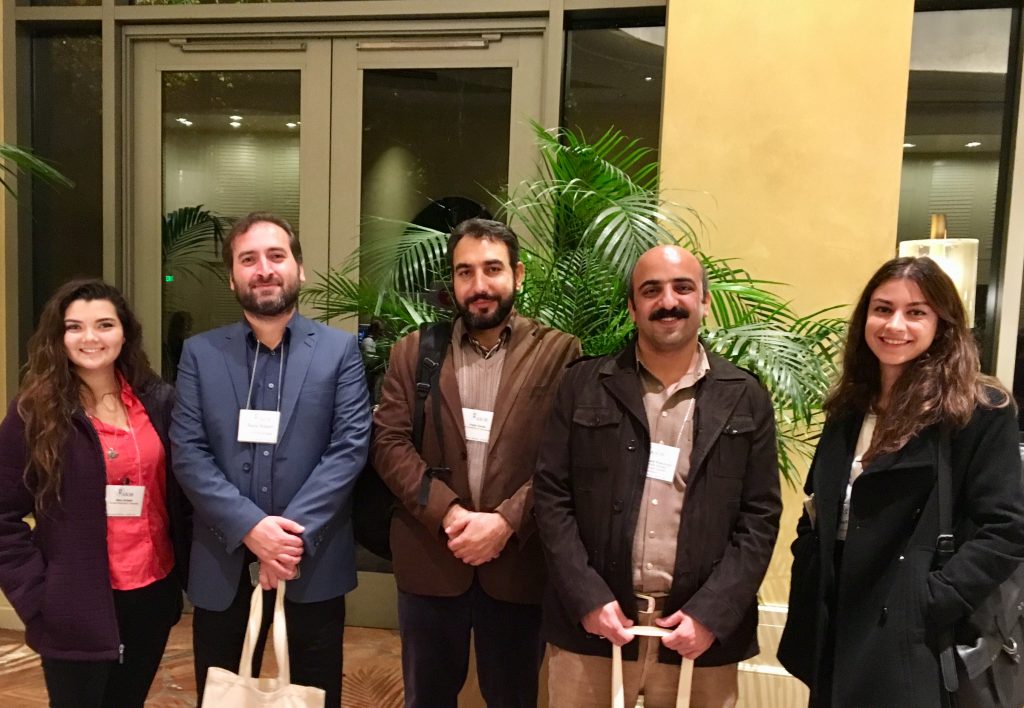
ARCHAEOLOGY OF IRAN AT ASOR
Written by ASOR session co-chairs: Holly Pittman (University of Pennsylvania) and Mehrnoush Soroush (Harvard University)
Over the past several years, ASOR has received the generous support of the American Institute of Iranian Studies (AIIrS) to sponsor the visas of Iranian scholars and to underwrite their participation in the ASOR Annual Meeting. The Archaeology of Iran session is one of ASOR’s permanent standing sessions. It is an important venue for facilitating scholarly exchange and building collaboration between Iranian and American archaeologists.
The ancient heritage of Iran is well known and has been investigated since the middle of the eighteenth century. For many decades in the twentieth century, Iran was the locus of some of the most exciting archaeological engagement for American scholars. Following the revolution in 1979, archaeological work by non-Iranian scholars was greatly reduced in the country, beginning again, with ebb and flow, around 2000. The re-opening of the country to foreign, especially western scholars, was part of a broader change in the Iranian Cultural Heritage Organization, to train a new generation of Iranian archaeologists and to use these talents in new institutional structures devoted to research and preservation of cultural heritage. Since then many young Iranian archaeologists have completed their graduate degrees, especially at the University of Tehran, as well as in Europe and in the United States, and are actively undertaking systematic archeological research in universities or in the wide spread cultural heritage network supported by the central government.
The Archaeology of Iran papers cover all aspects of the science from Paleolithic through the Islamic period. The session usually consists of ten to twelve papers allocated over two sections. Ideally, the sessions are built around a core of Iranian nationals who are actively engaged in field research in the country. In addition, American and European nationals also contribute, some reporting on field work, others focusing on the study of heritage collections, or on the reanalysis of published material.
Securing visas for Iranian scholars is a difficult and prolonged undertaking for the scholars as well as for ASOR and AIIrS. Support from AIIrS includes reimbursement for visa applications, travel and lodging expenses, as well as a contribution to cover ASOR participation fees. The outcome of this process is affected by political environment and is more favorable in some years than others. The program was most successful in 2015, when the five Iranian applicants received visas and attended the meeting.
This year, we are again grateful to AIIrS, and especially to the unflagging support of Dr. Erica Ehrenberg, the Executive Director of the organization, for facilitating the application of five Iranian scholars who submitted papers selected by the organizing chairs. Two scholars, Dr. Mostafa Dehpahlavan and Mr. Hossein Moradi, will present their research in Denver. With permission from ASOR’s Program Committee, the other three scholars will give prerecorded or read presentations. These colleagues are all active field archaeologists and educators or cultural heritage specialists. We look forward to hearing about their ongoing research, addressing a variety of topics including:
Mostafa Dehpahlavan (University of Tehran), Mehrdad Malekzadeh (Iranian Center for Archaeological Research), and Zabih Allah Chaharrahi (Independent Researcher), “Archaeological Survey of Part of the Great Khorasan Road, the So-Called Pataq Defile or the Median Gate”
Hossein Moradi (Independent Researcher), “Site-Size Hierarchy in the Bampur Valley during the Chalcolithic Period: A New Approach for Understanding Complexity in Iranian Baluchistan”
Nasir Eskandari (University of Jiroft), “The Jiroft Archaeological Project 2017: Excavation at the Site of Varamin, Jiroft Plain, Southeastern Iran”
Hamed Vahdati Nasab (Tarbiat Modares University) and Abbas Moghaddam (Iranian Center for Archaeological Research), “Death and Violence During the Fifth-Fourth Millennia B.C., Khuzestan Plain, Southwestern Iran: Tol-e Chega Sofla Cemetery”
Mohammad Esmaeil Esmaeili Jelodar (University of Tehran) and Mohammad Mortezaei (Iranian Center for Archaeological Research), “Certain Evidence of Glazed Ceramic Manufacturing in Jorjan: An Overview of the Results from the Seventh Season”
